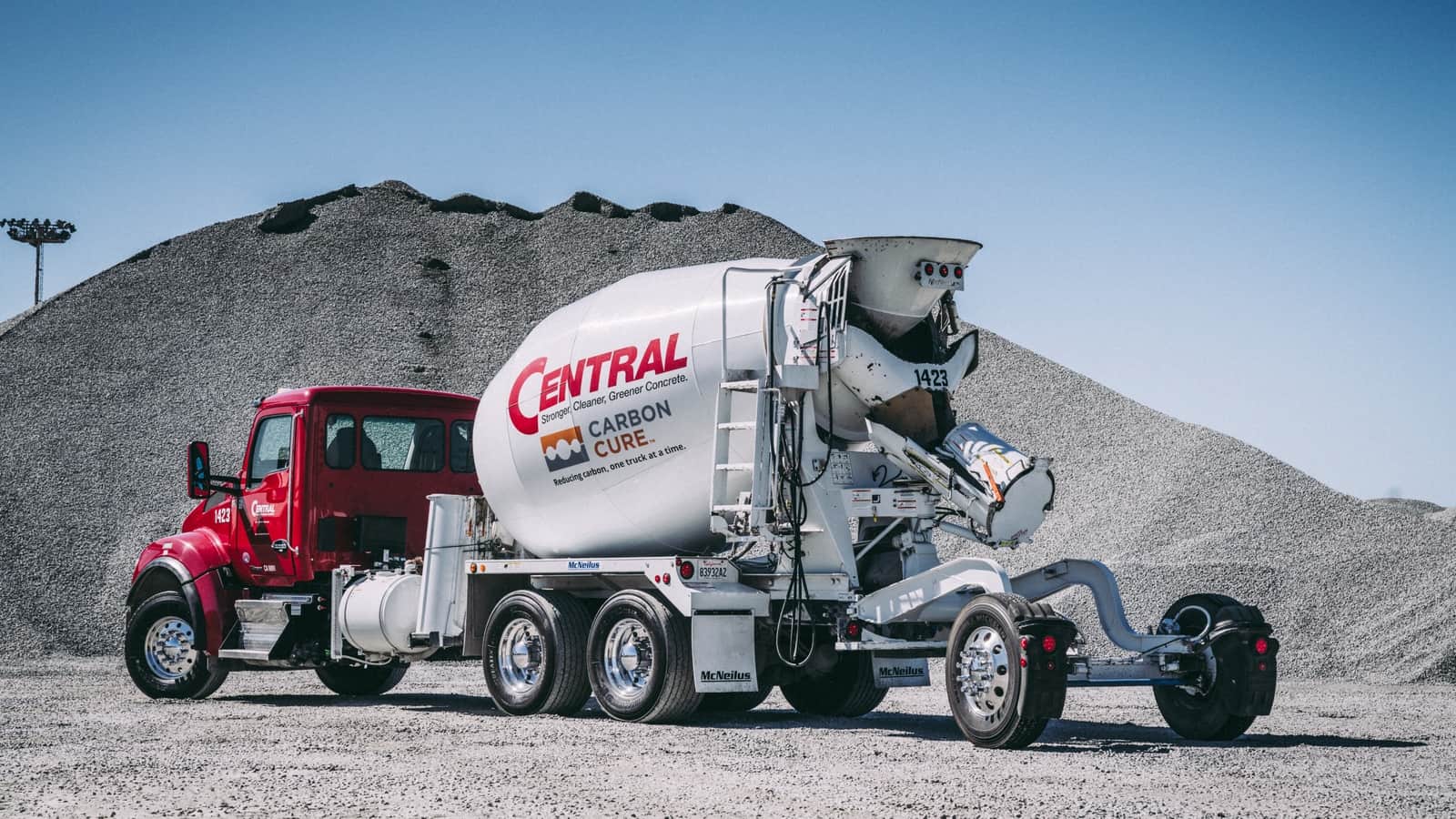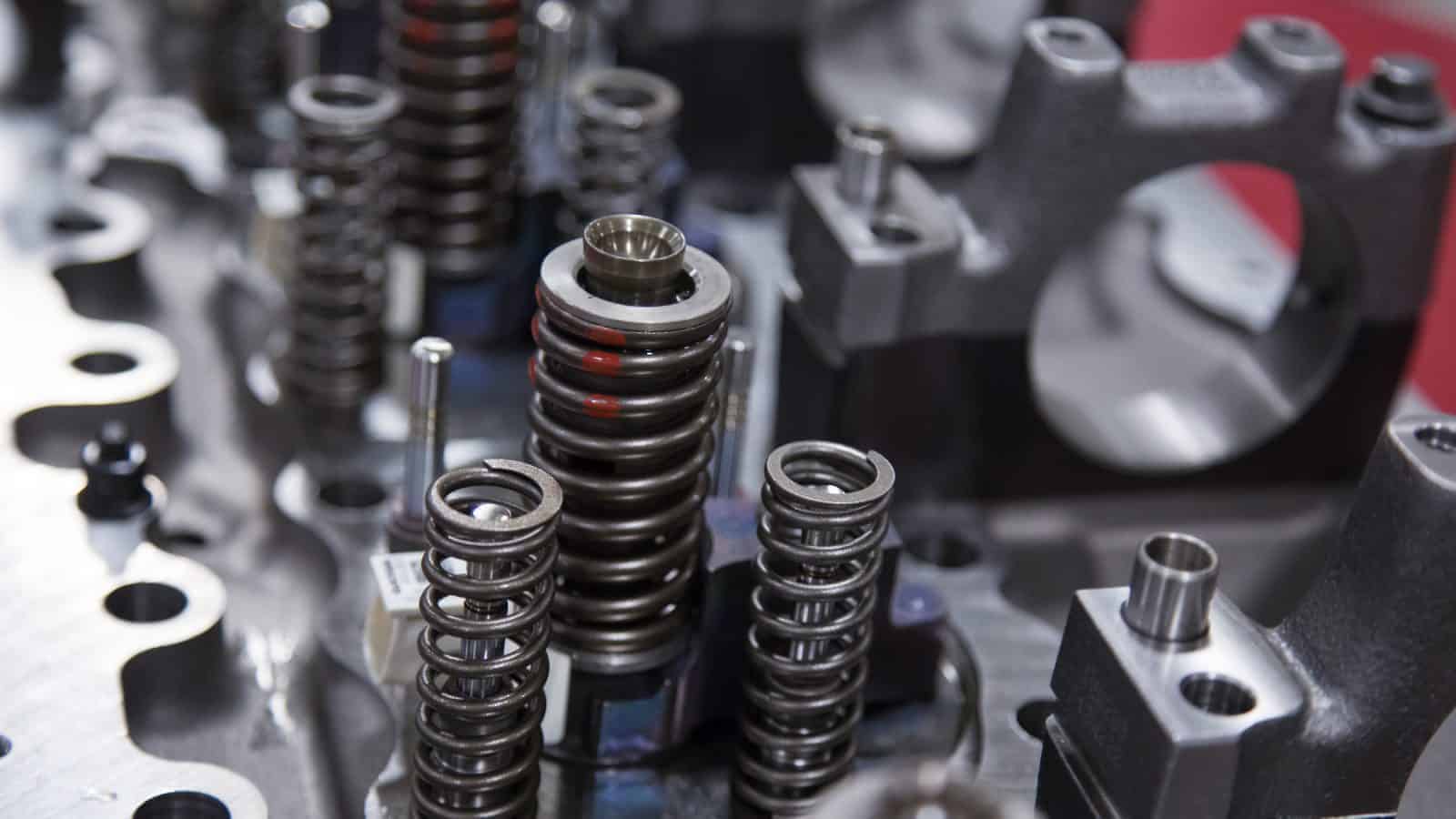Vulcan Materials Uses New Tech for Direct Air Capture of CO2

Today’s atmospheric pollution could become tomorrow’s building materials.
In February, Central Concrete, a subsidiary of Vulcan Materials Company, and carbon-removal firms Heirloom Carbon and CarbonCure, achieved an industry first: permanently trapping carbon dioxide from direct air capture in concrete using reclaimed-water technology.
How they did it: The firms took carbon dioxide captured from the air by Heirloom’s technology to a Central Concrete plant, and in a process developed by the Nova Scotia–headquartered CarbonCure, injected it into water that had been used to wash out concrete trucks. That water was then used to make new concrete.
- “Carbon dioxide reacts with calcium ions in the cement mix and turns into limestone—calcium carbonate,” said Alana Guzzetta, manager of Vulcan Materials Company’s National Research Laboratory in San Jose, California. “Once it’s there, it is very stable and stays as that limestone throughout the life of the concrete, even after demolition.”
Why it’s important: “Concrete is the most-used manmade material in the world,” Guzzetta said. “One reason is its versatility. We can take the same core ingredients and get a variety of capabilities and any shape. That’s where the topic of reducing embodied carbon [the greenhouse gases emitted during manufacturing and construction] becomes a big one.”
- The February demonstration captured approximately 66 pounds of carbon dioxide, or the equivalent of a car driving about 75 miles, according to reporting by Reuters.
- The process is also “going to better allow us to reduce the potable water demand,” Guzzetta said. “We’re implementing it and doing testing to figure out the right levels of carbon dioxide [to get] the best reclaimed water consistency, CO2 sequestering and performance with the potential to reduce embodied carbon.”
Sustainability-minded: February’s direct-air capture demonstration is one of many efforts that builds on the company’s decades-long dedication to environmental sustainability. In 2022, Vulcan also:
- Met its goal of securing 5% of all electricity from renewables;
- Supported biodiversity by maintaining projects certified by the Wildlife Habitat Council at 40 sites;
- Sustained a 98% environmental compliance rate across its 22-state footprint; and
- Supplied 2.1 million tons of recycled asphalt pavement and 1.7 million tons of recycled concrete to projects.
Moving forward: Vulcan Materials’ National Research Laboratory continues to test new products and form collaborations with other entities to develop lower carbon concrete and concrete with more sequestered CO2.
- “Any way that we can continue to trap additional carbon dioxide on the production side continues to offer us more ways to do lower-carbon construction projects,” Guzzetta said. “It just keeps moving us forward.”
